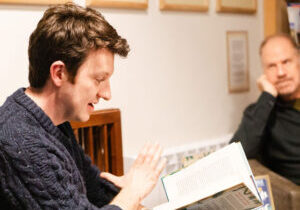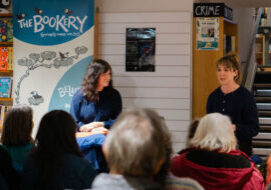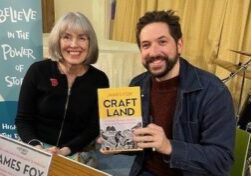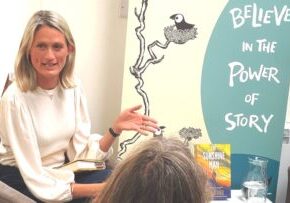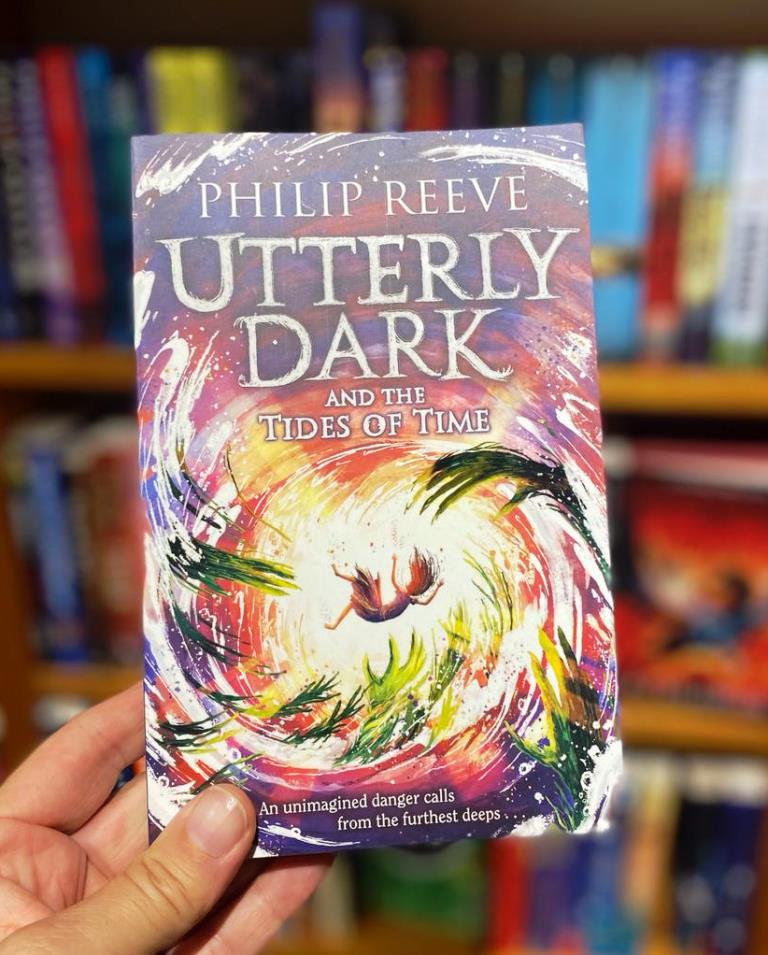
REVIEW
Utterly Dark And The Tides Of Time
Philip Reeve
September 9, 2023
Blog > Reviews > Utterly Dark And The Tides Of Time
Utterly Dark and the Tides of Time, the final instalment of Philip Reeve’s Utterly Dark trilogy, is everything we wanted it to be and more. The ‘more’ is provided by the time-shifting element, which adds rich layers of metaphysical reflection and emotional poignancy to the story and a Peter Pan-esque wistfulness for the approaching end of childhood and the transience of all things. The exploration of the nature of time is intricately woven in through the majestic omnipresence of the Gorm’s ocean, which not only provides the warp and weft for the plot and the characterisation, but is a masterful extended metaphor for time itself: ‘…for me, time is not a river. Time is a sea. It has its shallows and its deeps. Its myriad currents lead to every part of it, and I may swim as I like within it, through all the many ages of the world.’
From the first dramatic scenes onwards, we are carried away on a wave of superlatively vivid writing which first immerses us in Utterly’s world of the year 1812, and later, through an abundance of skilful observations, the surprising world of 1971 as seen through early 19th century eyes. A pervasive sense of the old magic slipping away from the world, as cold, rational science and technology take over, adds a further layer of poignancy and is reinforced by the way magic fades from the characters’ memories so easily – it is a slippery presence ‘harder to keep hold of than a snowflake or a soap bubble.’
The story packs an emotional punch in other ways, too. The pace is a perfect ebb and flow of exciting action and jeopardy interspersed with gentler scenes showing us the relationships between the characters. As well as some compelling new characters – including a thrillingly-described new villain – we get to meet all our favourite characters again and learn new things about them and the ways they are torn between conflicting emotions. Utterly loves the land and doesn’t want to leave it, but then she finds the sea has its charms too, and her longing to return to the land begins to slip away. Aish wishes Utterly could be her own daughter, but understands the Gorm’s ‘damp, salty, Gormish way of loving Utterly too.’ Egg is fiercely loyal to his friendship with Utterly, as ever, but also discovers new horizons and opportunities in this story. The great Gorm herself continues to act as an indiscriminately brutal ancient power on several occasions, but there are also touchingly vulnerable scenes where we see her learning how to love Utterly as a mother.
Even the less central characters are three-dimensional and drawn with fine nuances of emotion – we witness their innermost worries and desires, from Will Dark facing a whole new unexpected future, which throws up unresolved issues from his childhood, to Mrs Dearlove finding new common ground with Aish, whom she previously found to be rather daunting.
The ending is perfect – satisfying and thought-provoking in equal measure, providing a sense of resolution and conclusion to all three books in the trilogy, but also leaving things for the reader to ponder upon long after the book is over.
In his blog, Philip Reeve wrote that the Utterly Dark books ‘are among my best things, I think, and I’d really like to be able to do more stories set among the Autumn Isles.’ We couldn’t agree more – the Utterly Dark books are future classics, and we can’t wait for more stories set in this compelling world.
(Review by Claire)


